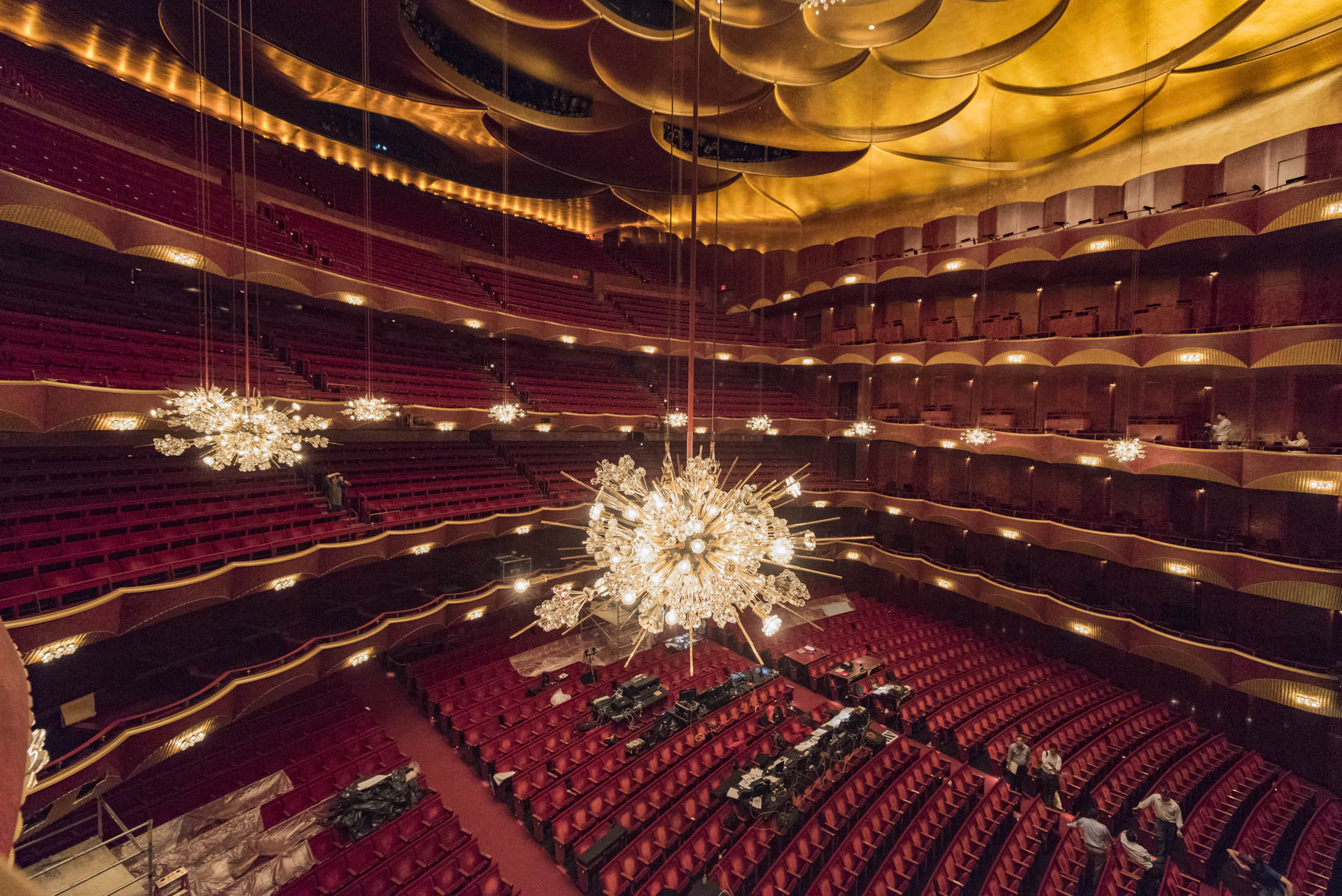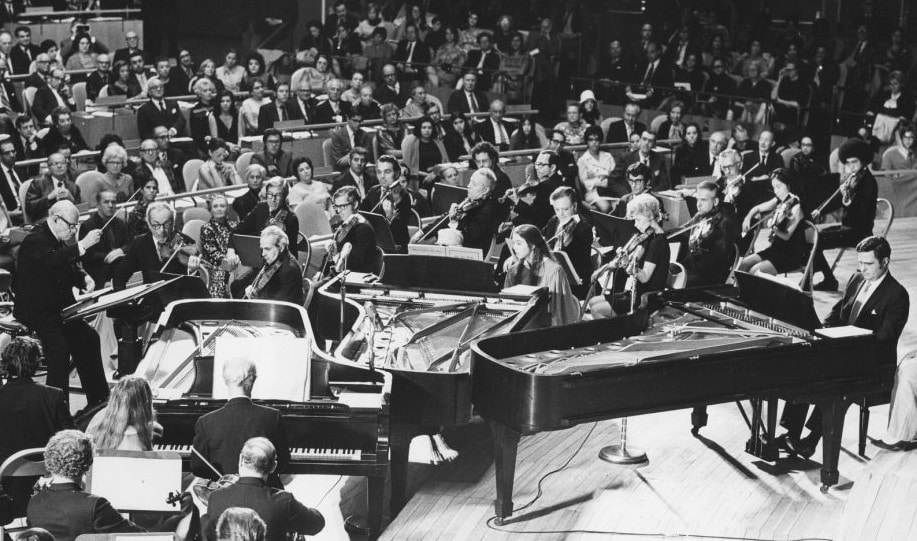Opera mag calls for singers to be paid for Covid cancellations
NewsFrom an editorial in the February issue of Opera magazine:
‘If any good is to come out of this crisis, there has to be a reform of the operatic economy. A new structure is needed that sees artitis getting paid for learning roles and attending rehearsals, not just the performances they give at the end of the process – which may get cancelled. Now that Covid cancellations have been ongoing for two years, nothing can be said to be unforeseeable—force majeure is a major farce, and contracts need to be redesigned to protect artists.’
Every weighted word the truth.
Why do agents let opera houses get away with this?






How ironic that the photo here is of the Met, which has yet to cancel a performance this season.
But it is one of the few houses that paid absolutely nothing at all when performances were not happening. Most paid something.
This seems to me an essential step in adapting contracts to our new reality. Many, many performers who had invested substantial time in learning and rehearsing parts, renting flats, relocating families around were, when houses closed or cancelled due to covid, summarily dismissed without so much as a thank you or a penny. Many of us contributed to private help funds to help them weather the times. Financially well-secured singers like Klaus Florian Voigt have sharply criticised opera and other management who have walked away from artists during covid hiding behind contract claused.
Instead of running an opera house as if it were a business, only looking at budgets, overhead, and possibilities to cut expenses to get even, with the intention to keep the organisation financially ‘healthy’, looking at the resources as a community investment would be much better, as there are for bridges, roads, the police force, driver service for politicians, the upkeep of monuments etc.
Of course performers should be paid for their work including rehearsels. But that means also that fees for performances best be spread over the whole period of working, for some type of insanely high fees this would result in the same total figure.
Or, in the view of corona sensitive prospects: disconnection of the live performance from all the preparation efforts. You pay all performers (including the orchestra) only for rehearsel time and NOT for the performance, to garantee their income, and regard the performances as a mere bonus – unpaid. This could be done in such a way that it’s only a matter of shifting payments without undermining performers’ security. Productions can then be streamed through the internet if live performance is not possible.
What then happens if a singer does all the rehearsals and then gets sick, or injures themselves, and can’t do the performances? They would have to pay the jump-in/cover a decent fee, on top of the full fee for the original singer. The theatre then has paid pretty much double. And it will only encourage cancellations of performances and disappointed audiences if there is no financial incentive to perform.
Maybe they could give the role to a young, unknown singer, unpaid. This could be a breakthrough to paid roles on the back of it.
An opera house IS a business. It is not a publicly funded public service. It is interesting to speculate about clever ways to distribute income, but that discussion is pointless without revenue to distribute.
In Europe, opera houses are a public good. That is the result of history and a good one. So, they are funded by the state.
Euclid explains it best:
corona = force majeure
force majeure = major farce
corona = major farce
Can you please translate this from French to simple English?
In principle this would seem a good idea.
But it also raises questions:
For purposes of such payments, will any distinction be made according to whether it was the artist, or the presenting organization, who cancelled a performance?
Are the chorus and orchestra and stagehands (especially if they don’t have a union) also included within the definition of the “artists” who would be compensated when the house cancels a performance? Or just the big-name soloists who have the “agents” mentioned here?
Again, I think it could be a good idea but, as the saying goes, “the devil is in the details.”
Nice photo of the empty Met – which of course hasn’t been empty since it’s reopening. And, only a handful of performances cancelled.
… its not it’s (it is!)
In terms of major American houses, agents are powerless to renegotiate force majeure clauses because it’s the artists’ unions that negotiate with the opera house. It’s the contracts negotiated between opera house and union that allowed force majeure to include things like “pandemic,” a factor not typically allowed in most legal contracts. Of course, if the theater closes due to governmental ordinance, then the theater is absolutely powerless; however, pandemic as a legal term is way too broad. A company could cancel any performance on such grounds until the pandemic is officially declared over by whoever’s job it is to do so!
While I agree with your comments that serious reforms are needed, agents have fought very hard for artist compensation. They have had more success in Europe but in the US it is AGMA that negotiates with the houses to determine whether or not payments will be made and to what extent those payments will include such items as compensation, rescheduling, or both. So to say that agents let houses get away with this is totally inaccurate. When artists do not get paid, neither do their agents. Agents through associations such as OMAI, IAMA, AEAA, ARIACS, AFAA, and DOKA are working diligently to help change the manner in which artists are paid, and to ensure that they are compensated for cancellations. Unfortunately, it is a very complicated issue in which artists, agents, houses, and unions must all come together to solve. Hopefully the reforms you mention will come to fruition but it will take time to change the status quo that has gripped our profession for decades.
Dear Norman,
We thank you for sharing this important editorial. We wholeheartedly agree with your concern about the dire plight of freelance artists and reforms necessary in the opera economy. We as agents have been working diligently to address this pressing situation and are currently in ongoing discussions with numerous international opera companies, who, for the most part, are acutely aware of the need to give more security to the freelance artist.
This is an immediate goal of OMAI, Opera Managers Association International (www.operamanagers.org), which was founded in 2020 during the pandemic and now represents 80+ members. We have brought together opera managers from around the globe to advocate for better artist protections and for long-term goals promoting fairer business practices. We work closely with our colleagues from other associations at IAMA, AEAA, AFAA in France, Ariacs in Italy and DOKA in Germany. We invite our colleagues to join us in this challenge and work together as a stronger, unified voice for the betterment of the opera industry.
Markus Laska – OMAI Communications Director